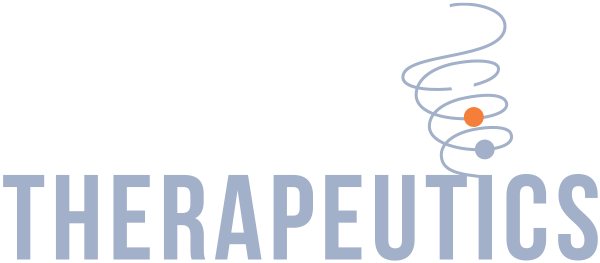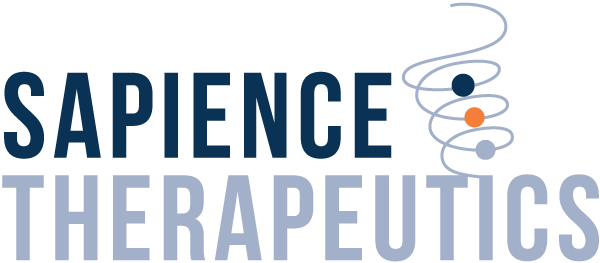TARRYTOWN, N.Y., December 19, 2024 – Sapience Therapeutics, Inc., a clinical-stage biotechnology company focused on the discovery and development of peptide therapeutics to address oncogenic and immune dysregulation that drive cancer, announced today that the U.S. Food and Drug Administration (FDA) has granted Orphan Drug Designation (ODD) to ST316 for the treatment of familial adenomatous polyposis (FAP).
FAP is a pre-malignant rare genetic condition that causes the formation of hundreds to thousands of polyps throughout the colon, typically starting in adolescence. With no approved therapies for FAP, without surgical intervention it will invariably lead to the development of colorectal cancer (CRC) by the age of 40. Development of FAP is considered an initiation event in the development of CRC, which is expected to be diagnosed in 150,000 patients in the United States next year.
ST316 is a first-in-class antagonist of β-catenin and its co-activator, BCL9, currently in a Phase 2 study for the treatment of CRC. ST316 is designed to selectively shut down the Wnt/β-catenin signaling pathway, which is a key driver of FAP and more than 80% of CRCs, underscoring the importance of this pathway for therapeutic intervention.
“We are thrilled that the FDA has granted Orphan Drug Designation to ST316 for the treatment of FAP. This award is an important regulatory milestone that advances our approach to targeting genetic alterations in the Wnt/β-catenin signaling pathway, which are drivers of both pre-malignant and malignant disease,” commented Dr. Abi Vainstein-Haras, Sapience’s Chief Medical Officer. “Other than high morbidity surgery and intensive colonoscopy surveillance, patients with FAP have no available treatment options to prevent their disease from progressing to CRC, the second-leading cause of cancer death in the United States. We look forward to continuing to work diligently to advance ST316 development in both FAP and CRC patient populations.”
Orphan Drug Designation is granted to drugs or biological products for the treatment of rare diseases or conditions that impact fewer than 200,000 people in the United States. Incentives that come with the designation include eligibility for federal grants, research and development tax credits, waiver of filing fees and the potential for seven years of marketing exclusivity.
About ST316
ST316 is a first-in-class antagonist of the interaction between β-catenin and its co-activator, BCL9, a complex responsible for driving oncogene expression and immune exclusion in multiple cancers where aberrant Wnt/β-catenin pathway signaling is observed. ST316 exposure in cancer cells prevents BCL9-driven nuclear localization of β-catenin and inhibits formation of the Wnt enhanceosome protein complex. Disruption of this interaction selectively suppresses the transcription of oncogenic Wnt target genes that regulate proliferation, migration, invasion and the metastatic potential of tumor cells, as well as genes that regulate the immunosuppression of the tumor microenvironment. ST316 creates a pro-immune tumor microenvironment and in preclinical models has shown to be synergistic with checkpoint inhibition. Due to its selectivity and downstream modulation of the Wnt/β-catenin pathway, ST316 presents an opportunity to safely and effectively target Wnt/β-catenin driven pathologies without the toxicities previously seen with other Wnt pathway agents.
ST316-101 (NCT05848739) is a first-in-human, open-label, Phase 1-2 dose-escalation and expansion study designed to determine the safety, tolerability, PK, PD and early efficacy of ST316. The Phase 1 dose escalation portion of the study tested various dose levels of ST316 in patients with select advanced solid tumors that are known to harbor abnormalities of the Wnt/β-catenin signaling pathway, including CRC. ST316 is currently being tested in the Phase 2 portion of the study in CRC patients in combination with relevant standards of care and in multiple lines of treatment. The U.S. FDA has granted Orphan Drug Designation to ST316 for the treatment of familial adenomatous polyposis (FAP).
About Sapience Therapeutics
Sapience Therapeutics, Inc. is a privately held, clinical-stage biotechnology company focused on discovering and developing peptide therapeutics to address oncogenic and immune dysregulation that drive cancer. With in-house discovery capabilities, Sapience has built a pipeline of therapeutic candidates called SPEARs™ (Stabilized Peptides Engineered Against Regulation) that disrupt intracellular protein-protein interactions, enabling targeting of transcription factors which have traditionally been considered undruggable. Sapience can also direct cargo to cell surface targets with their new class of molecule called SPARCs™ (Stabilized Peptides Against Receptors on Cancer), enabling delivery of payloads such as α-particles to cancer cells. Sapience is advancing its lead programs, ST316, a first-in-class antagonist of β-catenin, and lucicebtide (formerly known as ST101), a first-in-class antagonist of C/EBPβ, through Phase 2 clinical trials.
For more information on Sapience Therapeutics, please visit https://sapiencetherapeutics.com/ and engage with us on LinkedIn.
Media and Investor Contact:
Amy Conrad
Juniper Point
(858) 366-3243
amy@juniper-point.com

